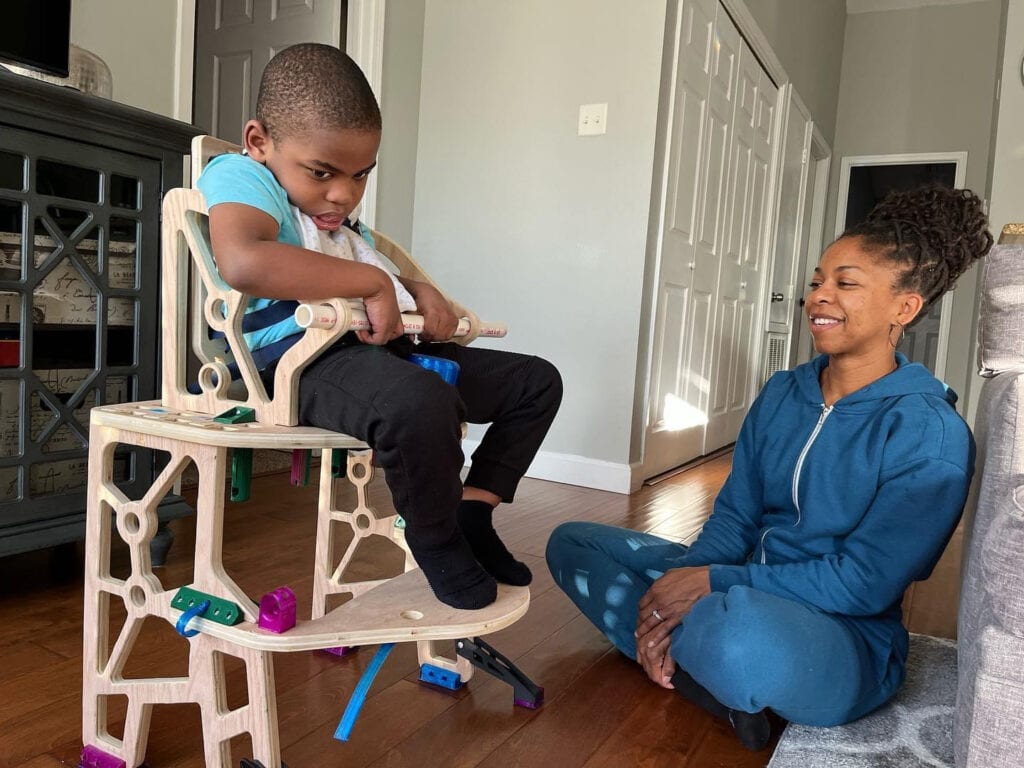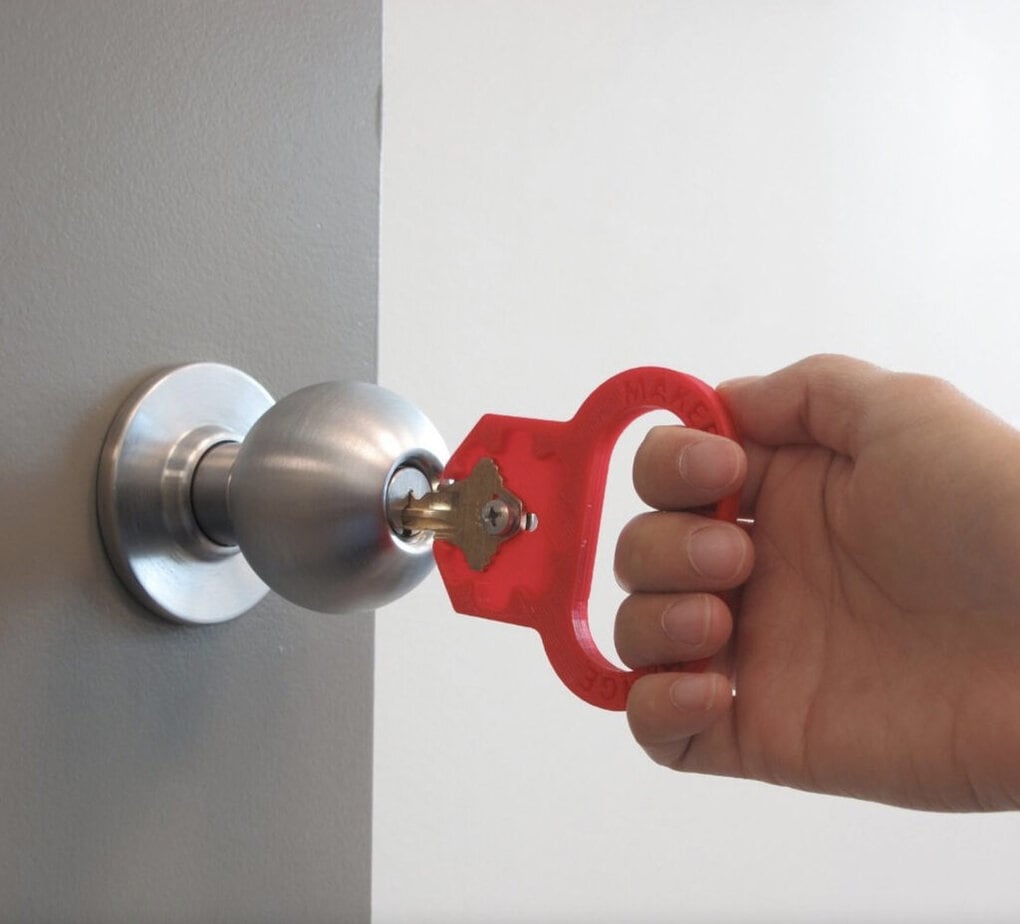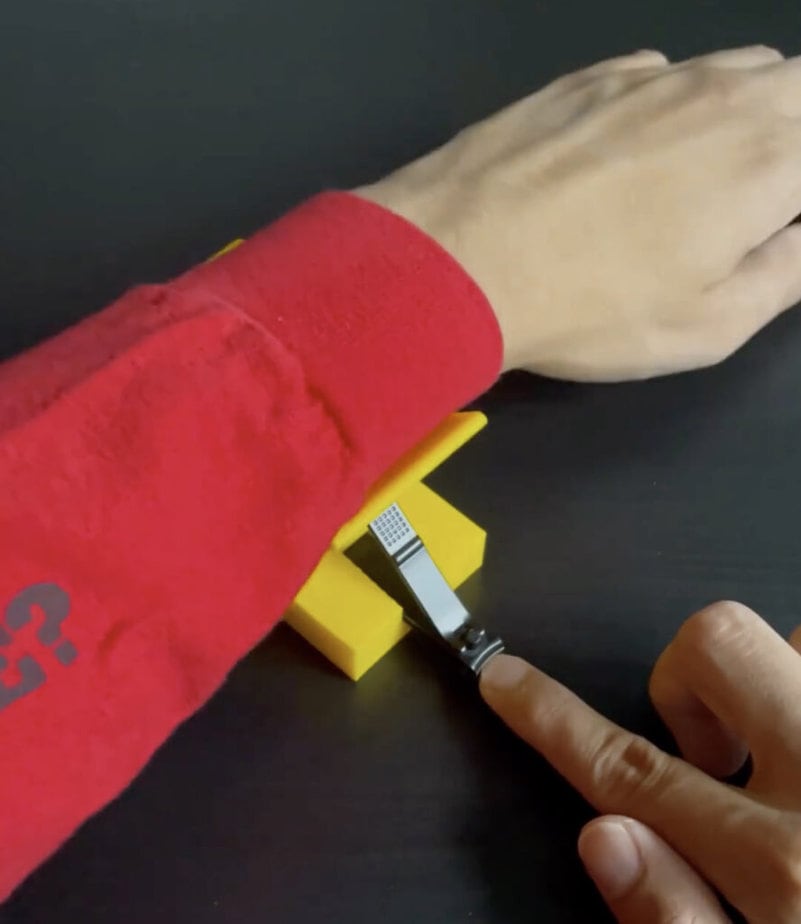Makers Making Change: Do-It-Yourself Assistive Technology
November 1, 2023
Cheryl Angelelli
Ever searched for a piece of assistive technology to solve an everyday problem only to find it doesn’t exist, or the price tag was outrageous? Perhaps you’ve even purchased a piece of assistive technology in the past and thought, “why didn’t I think of that?” or “I could have made this so much better.” Now you can.
Makers Making Change, a Canadian nonprofit, connects people with disabilities to volunteer makers, who collaborate to build low-cost alternatives to commercially available assistive technology.
According to the World Health Organization, 2.5 billion people globally need one or more assistive products to help them with activities of daily living, and that number is expected to grow to over 3.5 billion by 2050. Unfortunately, assistive devices often aren’t included in health care plans, leading to high out-of-pocket costs that are prohibitive for many people who need them.
MMC is bridging that gap with do-it-yourself assistive technology. Their growing online library currently has over 200 assistive devices ranging in price from $2 to $250. It includes items from low-tech, 3D-printed bottle openers, nail clipper holders and cupholders to higher-end customizable joysticks for gaming, and LipSync wireless, mouth-operated mouse controllers. You simply submit a request, and a volunteer maker near you will make it. You only pay for the cost of materials. Many of the devices have a 3D-printing component, which keeps costs low and makes it easier for people to build at home.
By working with volunteer makers, requesters have the ability to customize their devices to address specific needs. If the device library doesn’t have the device you’re looking for, you can submit your idea and work with a maker to turn it into an actual device. The turnaround time depends on the complexity of the design: Something that can be done with a 3D printer can be accomplished in days, while other items may take longer.

“Some of these are very simple, very cheap-to-make devices, but they make a world of difference for people,” says Suzanne Winterflood, MMC’s central region coordinator. “Some of the ideas for the devices come from end users, our own engineers, therapists or design competitions we partner with. It’s very collaborative.”
Every device design contributed by MMC’s team of engineers or their volunteer makers is open source, meaning anyone around the world can download the files and instructions for free to build their own devices. Open source also lets MCC collaborate with similar DIY assistive-technology organizations and makers globally, so they can build upon each other’s work and contribute back to the community.
Giving Purpose and Hope
As a quadriplegic, Garry Bartsch says 3D printing has given him a forum in which to create. “I really like it because I can’t do things with my hands,” says Bartsch, of Alberta, Canada. “I can type, and I can operate a computer, but I can’t really make anything. But with the 3D printer, I can just design things [using computer-assisted design] and then the printer makes stuff.”

After printing inventions for himself and friends for years, Bartsch put his skills to use for MMC. He has printed several low-tech assistive technology kits, each with seven items to assist with daily living, such as a tube opener, pen holder, and key turner.
MMC has over 50 chapters throughout Canada and the U.S. Noam Platt is the coordinator of MMC’s Louisiana chapter and founder of MakeGood Assistive Design. Platt, an architect, was looking for a way to use his design skills for something where he could see the impact it made. “I feel like every time I deliver one of these [assistive] devices, I get a hopeful feeling that the world has been changed a little bit for the better for the next generation,” Platt says.
Platt partnered with Quanteria Williams-Porche, a physical therapist who had requested a portable adapted toilet chair for her 6-year-old son, Alexander, with spastic quadriplegic cerebral palsy. Among her requests was that the chair be safe for Alexander, with his poor motor control, to sit independently and not tip. She also wanted something that would not take up a lot of room in her small home.
After meeting Williams-Porche and Alexander, Platt quickly went to work designing and making the chair. The main body of the chair is made of birch plywood and the other components are different types of standard or high-end 3D-printed plastics.
Williams-Porche loves the final product (see photo at left). It takes only minutes to put together, it’s lightweight and packs flat, which makes traveling easier. Platt has taken the chair on board a plane and says it fits easily in the overhead compartment.

Williams-Porche priced similar commercially available toilet chairs that ranged anywhere from $600-$1,500, but those were bulky and did not address Alexander’s specific needs. The cost of materials to build the custom toilet chair that Platt designed was only a couple hundred dollars. “Just knowing my son will not be in diapers forever, that he’ll be able to use this chair — it just opens up a new world and new possibilities for us,” Williams-Porche says.
Get Involved
MMC welcomes makers of all abilities and skill levels, whether you’re just starting your maker journey or you’re a skilled engineer wanting to donate your time. Many of the devices involve 3D printing, electronics, soldering, mechanics, design, and computer-assisted design.
There are several ways to get involved. Volunteers can fulfill a design request, tackle a design challenge, or start a chapter to bring DIY AT into their community. Learn more at makersmakingchange.com.
Support New MobilityWait! Before you wander off to other parts of the internet, please consider supporting New Mobility. For more than three decades, New Mobility has published groundbreaking content for active wheelchair users. We share practical advice from wheelchair users across the country, review life-changing technology and demand equity in healthcare, travel and all facets of life. But none of this is cheap, easy or profitable. Your support helps us give wheelchair users the resources to build a fulfilling life. |


As a PM&R doc I love your motivation and integrity